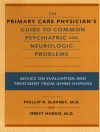Changing demographics are forcing organizations in the United States to address cultural issues. Addressing Cultural Issues in Organizations analyzes how unexamined cultural patterns influence an organization′s culture. Organized into three sections, this volume was written by a panel of experts with extensive research and publication histories in psychology, education, and organizational consulting. How organizational leaders shape and influence the agenda surrounding culture and how culture matters in the country′s organizational life is explored, as well as institutional and organizational issues in corporate, educational, mental health, and service organizations. Various organizational intervention strategies and approaches are also discussed. This book provides groundbreaking conceptual models as well as ideas about how to build practical approaches to organizational interventions.
สารบัญ
PART ONE: PERSPECTIVES
Perspectives on Addressing Cultural Issues in Organizations – Robert T Carter
National Culture and the New Corporate Language for Race Relations – Clayton P Alderfer
′Whiting Out′ Social Justice – Michelle Fine
Making Sense of Race Relations in Organizations – David Thomas and Karen L Proudford
Theories for Practice
School Contexts and Learning – Linda Darling-Hammond
Organizational Influences on the Achievement of Color
PART TWO: ORGANIZATIONAL AND INSTITUTIONAL SETTINGS
Families in Their Cultural and Multisystemic Contexts – Nancy Boyd-Franklin
Teachers as Multi(Cultural) Agents in Schools – A Lin Goodwin
Cultural Dynamics and Issues in Higher Education – Raechele L Pope and Corlisse D Thomas
Mental Health – Barbara C Wallace
The Influence of Culture on the Development of Theory and Practice
The House of God – Vivian Ota Wang
The Fallacy of Neutral Universalism in Medicine
And Justice Is Blind (to Race and Ethnicity) – Curtis W Branch
Is That Good?
PART THREE: INTERVENTIONS AND APPLICATIONS FOR TRAINING
Classic Defenses – Samuel D Johnson
A Critical Assessment of Ambivalence and Denial in Organizational Leader′s Responses to Diversity
Enhancing Diversity Climate in Community Organizations – Roderick J Watts and Arthur Evans
Social Diversity in Social Change Organizations – Evangelina Holvino
Standpoint Learnings for Organizational Consulting
Building Institutional Capacity to Address Cultural Differences – Thomas Gallagher
Cultural Issues in Organizations – Robert T Carter and Leah M De Sole
Summary and Conclusions
เกี่ยวกับผู้แต่ง
Robert T. Carter, Ph.D. is Professor of Psychology and Education, Chair of the Department of Counseling and Clinical Psychology, and Director of training of the Counseling Psychology Program at Teachers College, Columbia university. Dr. Carter is known internationally for his work on Black and White racial identity. He has published in the areas of psychotherapy processes and outcome, career development, cultural values, racial identity issues, educational achievements and equality in education through the lens of racial identity. He has been retained to consult as organizational, legal and educational issues associated with race and diversity. Dr. Carter also is the Conference Director for a national conference known as the Teachers College Winter Roundtable on Cross-Cultural Psychology and Education
Dr. Robert T. Carter, Ph.D. authored The Influence of Race and Racial Identity in Psychotherapy: Towards a Racially Inclusive Model (John Wiley & Sons; 1995); co-edited with Chalmer E. Thompson Racial Identity Theory: Applications for Individuals, Groups and Organizations (Lawrence Erlbaum, 1997); co-authored with D. Sue, J.M.Casas, M.J. Fouad, A. Levy, M. Jensen, La Fromboise, J. Manese, J. Ponterotto, and J. Vasques-Natall Multicultural Counseling Competencies: Individual Professional and Organizational Development (Sage Publication, 1998); and is series editor for the Discussions from the Roundtable- The Counseling Psychologists and the Roundtable Book Series on Multicultural Psychology and Education (Sage publications). He is co-editor for the special issue of the Teachers College Record on Multicultural Education (Spring 2000).
Dr. Carter is also a legal consultant. He works with organizations and individuals on such issues as organizational development , teacher training, desegregation, racial discrimination, cross cultural adoption, and biracial custody. He is Fellow in the American Psychological Association (Div. 17, Counseling Psychology, and 45, Society for the Study of Ethnic Minority Issues) and former Chair of the Fellowship Committee for Division 17. He has also served on the editorial boards of The Counseling Psychologist, Journal of Counseling and Development, Journal of Counseling Psychology and Journal of Multicultural Counseling and Development.












